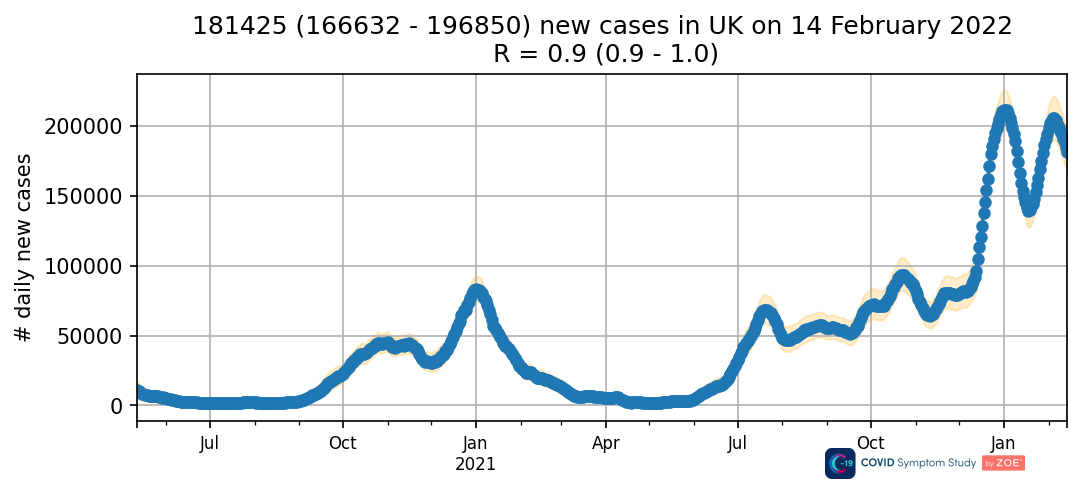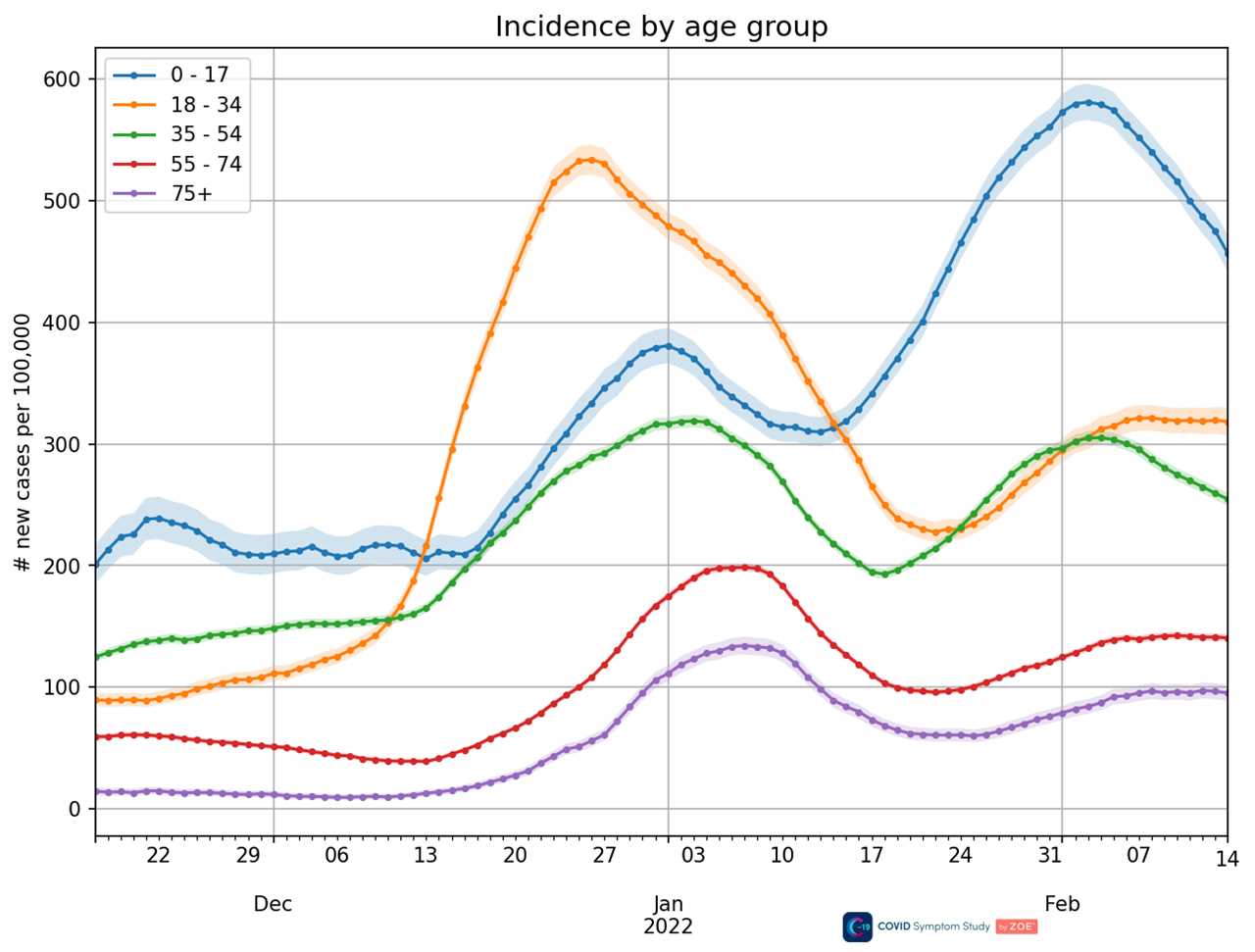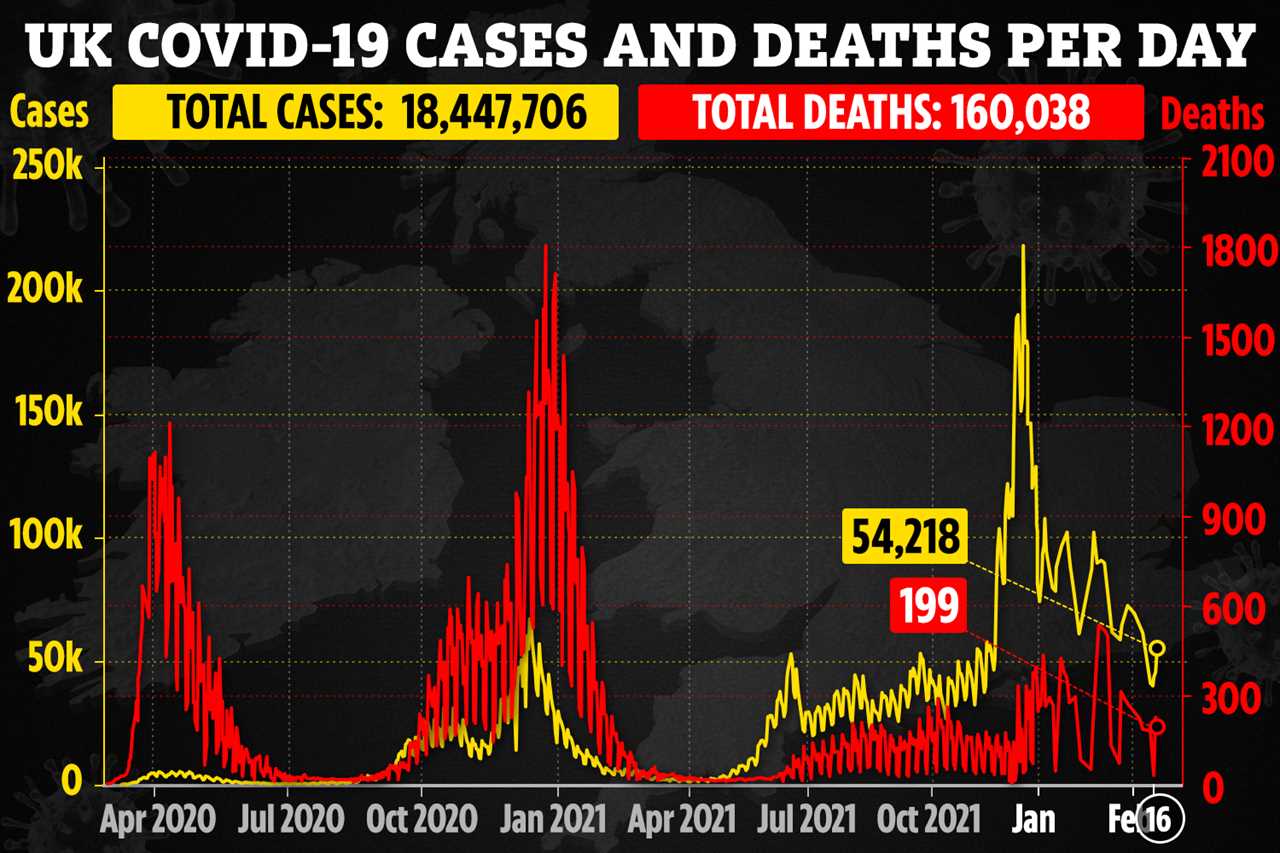COVID cases have started to fall from the “historic” highs the UK has seen over the past month.
While it is a promising sign Omicron is slowly in retreat, an expert has warned of the threat of new variants.

Cases have fallen by 11 per cent from last week, according to data logged on the ZOE Covid Study app.
Last Thursday there were 203,973 reported cases. Today there are 181,424.
Around one in 25 people in the UK have symptomatic Covid, it is thought, with all regions in England seeing a drop.
Infections in all age groups are slowing, and falling rapidly in the 0-17 and 35-54 year olds.
Professor Tim Spector, lead scientist on the app, said: “We hope that cases continue to fall consistently so that case numbers finally return to an acceptable level.
“Until then, cases remain historically high with one in 25 people currently having Covid and numbers still increasing in Scotland and Northern Ireland.
“Whilst I agree we have to learn to live with Covid, and hospital and ICU admissions are very low, the ZOE data doesn’t yet suggest that we’ve entered a stable or endemic phase.
“It’s very likely that there are more variants on the horizon with unpredictable properties.”
It comes as Boris Johnson announced the fast vaccine rollout means we are on course to ditch the final curbs a month early — the last legal restrictions being lifted by February 24.
Brits will no longer be legally required to isolate for five days if they catch coronavirus.
This will free millions of kids to stay in school rather than be sent home repeatedly because of symptoms that are usually no more than a cold.
Councils will also be stripped of emergency powers that lets them close businesses they deem a risk.

On the same day these last domestic laws are scrapped, No 10 also wants to tear up the final Covid border controls.
The PM will bring forward his plan, Living With Covid, when Parliament returns back from half term holidays on February 21.
Downing St said that while the law would be dropped health guidance would remain.
Mr Johnson’s spokesman said: “Obviously in the same way that someone with flu, we wouldn’t recommend they go to work, we would never recommend anyone goes to work when they have an infectious disease.”







